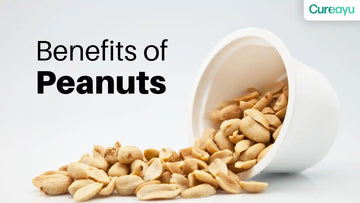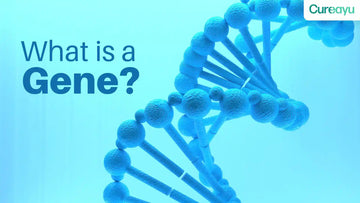Sugar is a common ingredient in countless foods and beverages we consume daily. From the sugar we add to our coffee to the hidden sugars in processed foods, it’s easy to exceed the recommended daily limit without even realizing it. While sugar may enhance the flavor of food and offer quick energy, excessive consumption can lead to serious health issues.
Understanding how much sugar a day is acceptable is crucial for maintaining a balanced diet and preventing health problems. This blog explores the harmful effects of excessive sugar intake, the daily recommended limits, and practical tips for managing your sugar consumption.
Also Read: How To Reduce Sugar Level Home Remedies: Natural Ways to Manage Blood Sugar
Harmful Effects of Sugar Intake
Excessive sugar consumption can have numerous negative effects on your body. Here are some of the major health risks:
-
Weight Gain and Obesity
High sugar intake, especially from sugary beverages, contributes to weight gain. Sugar-laden foods and drinks add extra calories without providing nutritional value, leading to fat storage and obesity. -
Increased Risk of Type 2 Diabetes
Consuming too much sugar over time increases insulin resistance, which can lead to type 2 diabetes. This condition makes it difficult for the body to regulate blood sugar levels, causing long-term health complications. -
Heart Disease
A diet high in sugar has been linked to a higher risk of heart disease. Excessive sugar increases triglycerides and bad cholesterol levels, leading to clogged arteries and heart problems. -
Tooth Decay
Sugary foods and drinks are one of the main causes of tooth decay. Sugar feeds the bacteria in the mouth, producing acids that erode tooth enamel, leading to cavities. -
Increased Risk of Fatty Liver Disease
Excess sugar, particularly fructose, can lead to the accumulation of fat in the liver. This may eventually cause non-alcoholic fatty liver disease, a condition that can progress to liver damage. -
Mood Swings and Mental Health Issues
High sugar intake can cause blood sugar levels to spike and then crash, leading to mood swings, irritability, and even symptoms of depression or anxiety.
Calories in Sugar
Understanding the calorie content of sugar can help you better manage your overall calorie intake.
- One teaspoon of sugar contains approximately 16 calories. While this may not seem like much on its own, the calories from sugar can accumulate quickly, especially if you regularly consume sugary foods and drinks. For instance, a single can of soda contains about 10 teaspoons of sugar, which is equivalent to 160 calories.
- Empty calories: The calories from sugar are often referred to as "empty calories" because they provide energy but no essential nutrients like vitamins, minerals, or fiber. When you consume foods high in sugar, you may feel full temporarily, but your body doesn't get the nutrition it needs to function optimally. Over time, this can lead to nutrient deficiencies and weight gain.
When you eat too many sugary foods, you are likely to consume more calories than your body needs, which can lead to weight gain and an increased risk of obesity-related health problems.
Also Read: Understanding the Sweetness: Natural Sugar vs. Added Sugar - How to Make Healthier Choices
Daily Sugar Intake Limit
Health organizations such as the American Heart Association (AHA) provide clear guidelines on the daily sugar intake to promote healthier eating habits and reduce the risk of chronic diseases. Excessive consumption of sugar, especially added sugar, can lead to several health complications like obesity, heart disease, and diabetes. To prevent these, the AHA sets daily sugar limits based on gender:
- For men: The AHA recommends a daily limit of no more than 9 teaspoons (36 grams) of added sugar. This equates to approximately 150 calories. Many popular beverages and snacks, such as sodas and candies, can easily exceed this limit if consumed regularly.
- For women: The AHA suggests that women consume no more than 6 teaspoons (25 grams) of added sugar daily, which translates to about 100 calories. Women’s recommended sugar limit is lower because they generally have lower caloric needs than men.
It’s important to emphasize that these limits only apply to added sugars—sugars that are introduced to foods during manufacturing, preparation, or at the table. These recommendations don’t cover natural sugars found in whole foods like fruits, vegetables, and dairy products. Natural sugars are healthier because they come with fiber, vitamins, and minerals that help slow down the absorption of sugar, preventing blood sugar spikes.
Types of Sugars: Natural vs. Added Sugars
Not all sugars are created equal. Understanding the difference between natural and added sugars can help you make healthier food choices.
-
Natural Sugars
Natural sugars are present in whole, unprocessed foods like fruits (which contain fructose) and dairy products (which contain lactose). These foods are packed with nutrients, such as vitamins, minerals, and fiber, which contribute to a balanced diet. The fiber in fruits slows the digestion of sugars, ensuring that blood sugar levels remain stable.
Natural sugars are typically not harmful when consumed in moderation because the accompanying nutrients make the sugar easier for the body to process. For example, an apple contains both fructose and dietary fiber, which helps prevent a rapid sugar spike after eating. -
Added Sugars
Added sugars, on the other hand, are introduced to foods during processing or preparation. These are found in common items like sweets, baked goods, sugary drinks, and processed snacks. Added sugars offer no nutritional benefit—just empty calories that can contribute to weight gain and increase the risk of various health issues.
Because added sugars are digested quickly, they cause rapid spikes and crashes in blood sugar levels, leading to fatigue, cravings, and overeating. Over time, frequent consumption of added sugars can increase the risk of insulin resistance and type 2 diabetes.
Also Read: Why is Sugar Harmful to Your Health and Well-being
Hidden Sources of Sugar in Your Diet
Many people unknowingly consume excessive amounts of sugar because it’s often hidden in processed foods. Even foods that don’t taste particularly sweet can contain surprising amounts of sugar. Here are some common hidden sources of sugar:
- Sauces and condiments: Many store-bought sauces, including ketchup, barbecue sauce, and salad dressings, contain added sugar to enhance flavor. For example, just one tablespoon of ketchup can contain 1 teaspoon of sugar.
- Flavored yogurts and granola bars: While yogurt and granola bars might seem like healthy snacks, many varieties contain large amounts of added sugar. A small cup of flavored yogurt can contain up to 20 grams of sugar, much of it added.
- Breads and breakfast cereals: Many commercial breads and cereals, particularly those labeled "whole grain" or "healthy," can still contain high levels of added sugar. Some breakfast cereals can have up to 12 grams (3 teaspoons) of sugar per serving.
- Packaged fruit juices and smoothies: While fruit juices and smoothies may seem nutritious, they often contain added sugars. Even if no sugar is added, the lack of fiber in juice means the natural sugars can still cause a rapid blood sugar spike.
By becoming aware of these hidden sources and reading food labels carefully, you can significantly reduce your daily sugar intake and make healthier choices.
Tips for Reducing Sugar Intake
Reducing your sugar intake can feel challenging, but with a few smart strategies, it's achievable. Here are some practical tips to help you cut back on sugar:
- Opt for natural sweeteners: Instead of refined sugar, try using natural sweeteners like honey, maple syrup, or stevia. These alternatives may still add sweetness to your foods but come with some nutritional benefits.
- Choose whole fruits over fruit juices: Whole fruits contain fiber, which slows down the absorption of sugar and prevents rapid blood sugar spikes. Fruit juices, on the other hand, lack fiber and can lead to higher sugar consumption.
- Limit sugary beverages: Sodas, sweetened teas, and energy drinks are major sources of added sugars. Replace these with healthier options like water, herbal teas, or water infused with fruits for natural sweetness.
- Read labels: Always check the nutrition facts and ingredient lists on food products. Look out for added sugars like high fructose corn syrup, dextrose, and sucrose, and try to choose products with minimal or no added sugars.
- Cook at home: Preparing your meals at home gives you full control over the ingredients. You can reduce or eliminate added sugars by using fresh, whole ingredients and cooking from scratch.
Conclusion
To maintain good health, it’s essential to understand how much sugar you consume each day. Excessive intake of added sugars is linked to serious health risks such as weight gain, diabetes, heart disease, and dental problems. By following the daily sugar intake guidelines provided by health organizations and being mindful of hidden sugars in processed foods, you can effectively reduce your sugar consumption.
Switching to natural sources of sweetness, choosing whole foods, and being vigilant about reading food labels are great ways to manage your sugar intake. While sugar does play a role in our diet, moderation is key. Make a conscious effort to limit added sugars, and your body will thank you with better health, more energy, and a reduced risk of chronic diseases.
By making small but significant changes in your diet, you can enjoy the sweetness of life without compromising your well-being.








